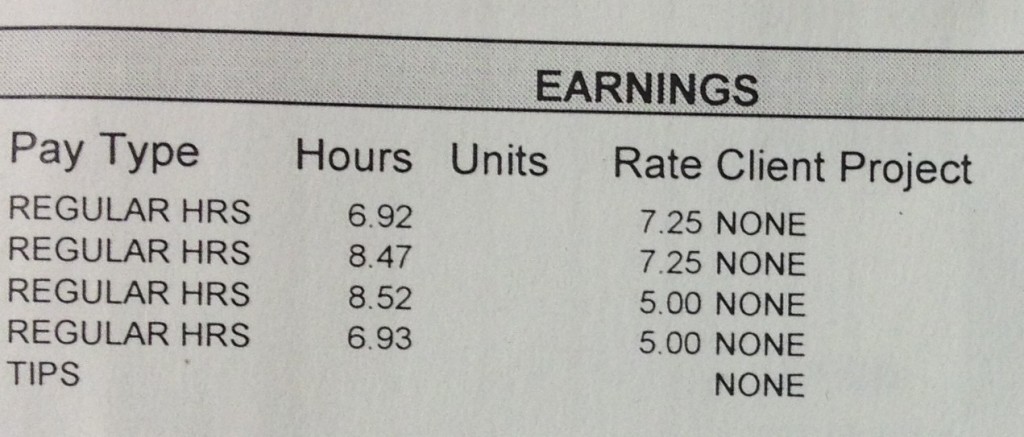For Jay Williams, a possible increase in the minimum wage could be a way to make her two jobs help her finally meet her expenses.
“I have rent, cell phone bill, I’m planning to buy a car, and step-kids,” said Williams, of Syracuse. She works two jobs as a cook at T.G.I. Friday’s and Subway just to make ends meet. She makes $8 an hour. That’s 75 cents over New York’s minimum wage.
Williams is among the estimated 1.6 million New Yorkers who would benefit from Gov. Andrew Cuomo’s proposal in his state budget to raise the minimum wage to $8.75 an hour from $7.25. Workers’ rights associations throughout the state are happy something is finally being done to raise the minimum wage, but were disappointed there wasn’t a provision that allowed it to be increased with inflation. But business organizations argue that this increase could raise prices and kill jobs.
The state legislature must approve the state budget by March 31. If it approves the governor’s proposal for the minimum-wage hike, it would go into effect July 1.
Mark Dunlea, executive director of the statewide Hunger Action Network, supports the minimum-wage increase. The organization, he said, feeds about 3 million New Yorkers a year. Of those, he said, over 1 million have jobs but don’t make enough to support their families.
“People who work, especially full time, should make enough money to feed their families, and house them, and clothe them,” said Dunlea.
Dawn Clarry, political director for the Local 200 Service Employees International Union in Syracuse, expressed disappointment that the proposal does not automatically raise the minimum wage based on inflation. This would automatically raise the minimum wage by the Consumer Price Index — or CPI — instead of the legislature having to pass a bill every few years.
With the automatic increase, Clarry said, “You don’t have to go back and constantly redo the numbers.”
But small business owners are fighting against the increase. Mike Durant, state director for the National Federation of Independent Business, said an increase would put too much of a burden on small business in a state that already has the nation’s second-highest cost of doing business.
He cited the governor’s estimate that the minimum-wage increase would put about $1 billion into the economy as workers spent their higher wages. “Well, that money is not free money. That money is going to come from business. That the businesses themselves are going to have to pay,” said Durant.
Brian Sampson is the executive director of Unshackle Upstate, a group that works to reduce government regulations on business. The last time that New York set its minimum wage higher than the national rate set by the federal government, said Sampson, the state lost about 20,000 jobs for young workers.
Those jobs, he said, are necessary in today’s economy. “Doing something that jeopardizes a potential twenty thousand more jobs isn’t the right thing to do right now,” said Sampson.
Both Sampson and Durant of the small business federation argue that businesses will not regain all of the money through workers’ spending more of their higher paychecks.
For her part, cook and two-job holder Jay Williams disagrees — at leasts for herself. If she had the extra money, she said, she would spend it. “Probably, yeah — definitely,” said Williams.
(Samantha Sonner is a junior majoring in broadcast and digital journalism.)
-30-




